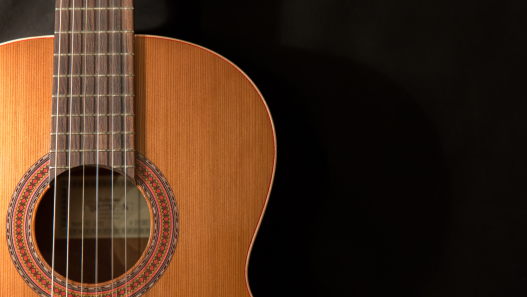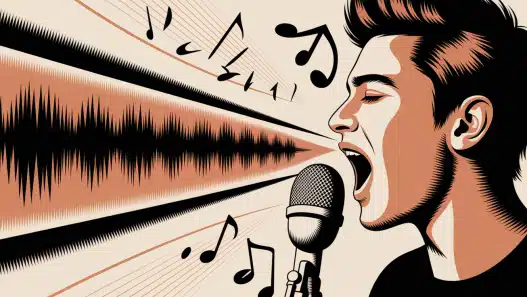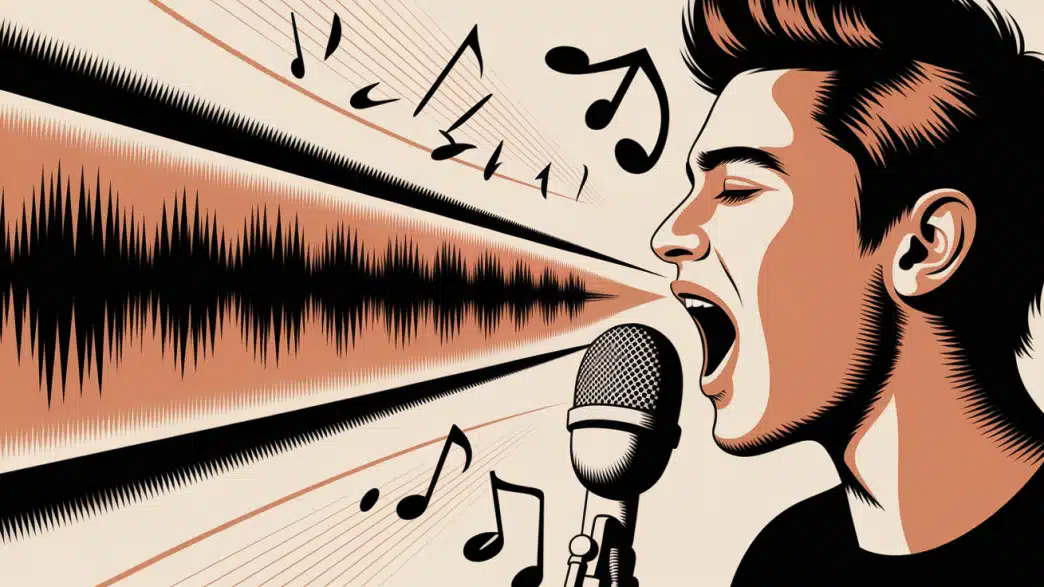A raspy voice can instantly grab attention with its gritty, textured sound—distinctive and unforgettable.
Whether it’s a rock star belting out a powerful tune or a storyteller sharing a compelling tale, this vocal quality has a certain charm that resonates with listeners.
It’s rough around the edges yet oddly captivating. But what exactly gives a voice that rough, gravelly feel?
Is it a natural trait or a product of some lifestyle choices? For some, a raspy voice is an iconic trademark, while for others, it may be a temporary result of a cold or a little too much cheering at a concert.
Regardless of the cause, there’s no denying the allure of this voice style. Let’s find out what sets a raspy voice apart and determine if it’s a source of pride or a cue to rest your vocal cords.
What is a Rasp Voice?
A rasp voice refers to the distinctive vocal quality marked by a rough, scratchy, or gravelly texture. This occurs when the vocal cords vibrate with some irregularity, creating friction as air passes through them.
Unlike a clear, smooth voice where vocal cords meet evenly, a rasp happens when the edges of the vocal folds don’t close completely or vibrate asymmetrically. This partial closure allows air to escape in a way that produces that characteristic rough sound.
The intensity ranges from slight grittiness to a coarse texture that feels broken. This quality adds character, depth, emotion, and authenticity to voices.
How it sounds
When comparing vocal qualities, a rasp voice sits between a husky voice (which has a breathy, whispered quality) and a smoky voice (which has a deeper, warmer tone). The rasp adds a layer of texture that feels slightly rough or gritty to the ear.
Common causes
Some people naturally have rasp in their voices due to the structure of their vocal cords or throat. For others, it develops over time from factors like:
- Years of singing or speaking in certain ways
- Vocal cord changes from aging
- Regular exposure to irritants like smoke
- Natural morning raspiness that some speakers emphasize
The amount of rasp can range from subtle roughness to a pronounced gravelly quality that becomes a defining vocal characteristic.
How to Get a Raspy Singing Voice?
Curious about adding that gritty texture to your vocals? Let’s dig into how to develop a raspy singing voice safely while protecting your vocal health.
Techniques to Achieve Rasp
Getting a raspy singing voice safely requires practice and proper technique. Here are some methods singers use to create this effect:
- Controlled vocal fry: Start by making a low, creaky sound at the bottom of your range. This basic technique can add slight texture when carefully blended into your singing voice.
- Singing in a lower range: Many singers find rasp appears more naturally in lower parts of their range. Try singing at the bottom of your comfortable range where your voice naturally wants to add texture.
- Air flow control: Practice allowing a small amount of extra air to pass through your vocal cords while singing. This slight breath leakage can create the desired rough quality.
- False fold engagement: With proper training, you can learn to slightly engage your false vocal folds (located above your true vocal cords) to add texture without strain.
- Twang technique: Adding some “twang” quality by narrowing your vocal tract can create mild rasp without damage when done properly.
Caution!Adding rasp to your voice carries risks if done incorrectly. Forcing a raspy sound through tension, excessive throat clearing, or deliberate vocal strain can lead to:
The safest approach is working with a qualified vocal coach who can teach healthy techniques for achieving rasp without harm. Remember that vocal health should always take priority over any specific sound you want to create. |
Why Make Your Voice Raspy?
Many singers seek to add that special roughness to their vocals for good reasons. Let’s look at why a rasp voice holds such strong appeal.
1. Musical Appeal
Singers often work to develop a raspy sound because it adds character that clean vocals might lack. A touch of rasp can make a voice stand out from others, creating a memorable sound that listeners recognize instantly.
Some singers find that adding this texture helps them express their musical ideas more fully, giving their performances a distinctive sound that becomes part of their artistic identity.
2. Expressive Qualities
A rasp voice can communicate feelings that smooth vocals sometimes can’t match. The rough edges add a sense of:
- Raw emotion and vulnerability
- Intensity and passion
- Authenticity and realness
- Maturity and lived experience
This texture often makes listeners feel the singer truly means what they’re singing. The slight imperfection in the sound creates a human connection that perfectly polished vocals might miss.
3. Trend in Certain Genres
Rasp voices have become almost expected in several musical styles:
- Rock music often celebrates raspy vocals for their power and edge
- Blues singers use rasp to convey deep feeling and soul
- Soul and R&B artists incorporate rasp for emotional impact
- Country singers might add rasp to express authenticity
These genres value the emotional weight and character that raspy vocals bring to performances, making it a sought-after quality for singers looking to excel in these styles.
Health Implications of a Rasp Voice
Adding texture to your vocals can create a unique sound, but it’s important to understand how it might affect your vocal health over time.
Short-term effects
Your voice can experience several immediate effects when you use or develop rasp:
| Effect | Details |
|---|---|
| Vocal strain | Muscles around the voice box work too hard to create the rough sound. |
| Dehydration | Worsens rasp and causes dry, irritated throat. |
| Overuse | Tired and less flexible voice from continuous use of raspy techniques. |
| Throat discomfort | Soreness or irritation after extended raspy singing. |
These effects usually fade with rest, proper hydration, and giving your voice time to recover.
Long-term risks
Constant use of raspy vocals without proper technique can lead to more serious issues:
| Risk | Details |
|---|---|
| Vocal nodules | Repeated friction causes growths on the vocal cords. |
| Polyps | Fluid-filled swellings form on irritated vocal cords. |
| Permanent changes | Scar tissue may alter vocal tone. |
| Reduced vocal range | Ongoing strain can lead to loss of range and control. |
Professional singers who maintain raspy voices learn specific techniques to minimize these risks.
When to seek help!
Pay attention to these warning signs that might indicate your raspy voice needs medical attention:
| Risk | Details |
|---|---|
| Vocal nodules | Repeated friction causes growths on the vocal cords. |
| Polyps | Fluid-filled swellings form on irritated vocal cords. |
| Permanent changes | Scar tissue may alter vocal tone. |
| Reduced vocal range | Ongoing strain can lead to loss of range and control. |
A voice specialist or ENT doctor can examine your vocal cords and recommend appropriate treatment if these symptoms appear.
Famous Singers with Rasp Voices
The music world features talented artists with raspy voices whose distinctive sound defines their signature style, creating lasting impressions on fans worldwide.
Male Singers
1. Rod Stewart
-
Why it’s iconic: Rod Stewart’s gravelly voice is synonymous with classic rock and pop music. His unique rasp has become one of the most recognizable sounds in music.
-
Famous songs: “Maggie May,” “Do You Think I’m Sexy?”
2. Bruce Springsteen
-
Why it’s iconic: Springsteen’s rough, gritty vocals add emotional depth to his rock anthems, resonating with listeners worldwide.
-
Famous songs: “Born to Run,” “Thunder Road”
3. Tom Waits
-
Why it’s iconic: Tom Waits is known for his raspy, gravelly voice that perfectly complements his dark, bluesy music style.
-
Famous songs: “Downtown Train,” “Tom Traubert’s Blues”
4. Steven Tyler (Aerosmith)
-
Why it’s iconic: Known for his high-pitched, raspy vocals, Steven Tyler’s voice is a crucial element of Aerosmith’s legendary rock sound.
-
Famous songs: “Dream On,” “I Don’t Want to Miss a Thing”
5. Keith Richards (The Rolling Stones)
-
Why it’s iconic: Richards’ raspy voice complements the rough, edgy sound of The Rolling Stones, adding to their timeless rock presence.
-
Famous songs: “Start Me Up,” “Angie”
6. Chris Daughtry
-
Why it’s iconic: Chris Daughtry’s strong, raspy voice helped him rise to fame in rock music, adding power and emotion to his songs.
-
Famous songs: “It’s Not Over,” “Home”
Female Singers
1. Janis Joplin
-
Why it’s iconic: Joplin’s voice is known for its raw emotion and powerful rasp. Her vocal delivery was as intense as it was soulful, making her a revolutionary figure in rock and blues.
-
Famous songs: “Piece of My Heart,” “Me and Bobby McGee”
2. Bonnie Tyler
-
Why it’s iconic: Bonnie Tyler’s raspy vocals have been a defining trait of her career. Her voice conveys emotion in a way that cuts through the heart of each song.
-
Famous songs: “Total Eclipse of the Heart,” “Holding Out for a Hero”
3. Amy Winehouse
-
Why it’s iconic: Amy Winehouse’s deep, soulful, and raspy voice made her stand out in the music world, combining jazz, soul, and pop in a unique way.
-
Famous songs: “Back to Black,” “Rehab”
4. Sheryl Crow
-
Why it’s iconic: Sheryl Crow’s raspy voice gives her rock and pop songs an earthy, approachable quality, helping her connect with a wide audience.
-
Famous songs: “All I Wanna Do,” “If It Makes You Happy”
5. Cher
-
Why it’s iconic: Cher’s deep, raspy voice has been a defining feature of her long career, making her a beloved icon in pop, rock, and dance music.
-
Famous songs: “Believe,” “If I Could Turn Back Time”
6. P!nk
-
Why it’s iconic: P!nk’s voice combines raspy, raw energy with powerful melodies, making her a standout artist in both pop and rock genres.
-
Famous songs: “Just Give Me a Reason,” “So What”
The Last Note on Raspy Vocals
A rasp voice adds a special quality to singing that many find appealing. This rough vocal texture brings feeling and depth that clean voices sometimes miss. As we’ve seen, some singers are born with this sound while others work to develop it safely.
If you want to try adding rasp to your voice, remember to put your vocal health first. Learn proper techniques, stay aware of your limits, and listen to your body’s signals.
The magic of raspy voices shows us that small flaws often create the most interesting sounds. What are your thoughts about raspy voices?
Have you tried singing with a bit of rasp? Share your favorite raspy-voiced singers or your own experiences in the comments below!
















